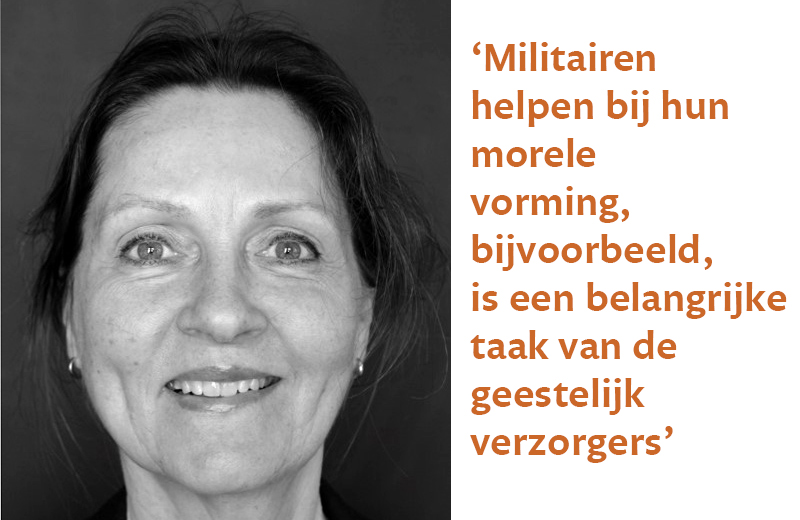Wij zijn als stichting Vrienden van het Boeddhisme bijzonder verheugd dat op 14 maart jl. Alie Rozendal is toegetreden tot ons bestuur. Zij neemt het secretariaat over van Rozanne van der Veur, die heeft aangekondigd in de herfst van 2022 afscheid te willen nemen van haar bestuursfunctie. In onderstaand stukje vertelt zij over haar loopbaan en over haar functie bij de krijgsmacht.

‘Ik ben mijn werkzame leven gestart als verpleegkundige in een academisch ziekenhuis. Na ruim 8 jaar maakte ik de overstap naar de kunstensector maar uiteindelijk wilde ik terug naar de zorg. Mijn plan was om oncologie patiënten en hun dierbaren te begeleiden; ik volgde daartoe een opleiding tot transpersoonlijk therapeut en vervolgens de Master Spiritual Care aan de RUG te Groningen. Via het boeddhistische netwerk (ik praktiseerde destijds bij Zen Spirit van Irène Bakker) ontving ik de uitnodiging om te solliciteren als boeddhistisch geestelijk verzorger bij Justitie. Tot mijn eigen verbazing ging ik met gedetineerden werken, een heel andere vorm van zorg.
Ik ben dus vanaf het begin (2011) betrokken geweest bij de ontwikkeling van boeddhistische geestelijke verzorging (BGV). Ik volgde de opleiding tot mindfulness trainer aan het Radboud centrum voor mindfulness en werkte van 2015-2018 in deeltijd als praktijkdocent en supervisor bij de ambtsopleiding BGV aan de VU te Amsterdam. Ik heb hiertoe de opleiding Begeleidingskunde aan de Hanzehogeschool te Groningen gevolgd.
In het voorjaar van 2019 werd de aanvraag van de BUN om boeddhistische geestelijke verzorging aan de krijgsmacht te mogen leveren gehonoreerd. En na een lange selectieprocedure ben ik daar op 1 mei 2020 gestart als hoofd van de dienst BGV. Mijn opdracht is om de komende jaren deze dienst vorm en inhoud te geven. Uitgebreide informatie over de dienst is te vinden op www.dgv.nl/boeddhisme. Voor mijzelf betekent dit opnieuw een andere vorm van geestelijke zorg bieden, al blijft de kern van het werk gelijk: mensen bijstaan die lijden, die worstelen met levensvragen en soms moeilijke keuzes moeten maken.
Bij de krijgsmacht zijn wij als geestelijk verzorgers ‘non-combattant’, we vallen buiten de militaire hiërarchie en dragen geen wapens. Wel hebben we een militaire rang en dragen we waar nodig een uniform. Na bijna twee jaar werken bij defensie merk ik dat de lessen van de Boeddha juist in deze omgeving heel waardevol kunnen zijn, ook voor niet-boeddhisten of mensen met een andere levensbeschouwelijke achtergrond.
Militairen helpen bij hun morele vorming, bijvoorbeeld, is een belangrijke taak van de geestelijk verzorgers. Voor ons als BGV betekent dit dat we het Achtvoudig Pad (waarvan het symbool, het Dharmachakra tevens ons embleem vormt) hierbij als uitgangspunt nemen. Hiernaast bieden we stiltedagen en retraites aan, waarbij we nadrukkelijk samenwerken met Nederlandse sangha’s uit verschillende boeddhistische stromingen.
Mijn ervaringen breng ik mee naar de stichting; ik hoop een bijdrage te kunnen leveren aan het verder uitbouwen van de uitgaven van de stichting, zodat er naast de Pali-Canon ook meer voor beginnende beoefenaars toegankelijke teksten ontwikkeld en uitgegeven gaan worden.’